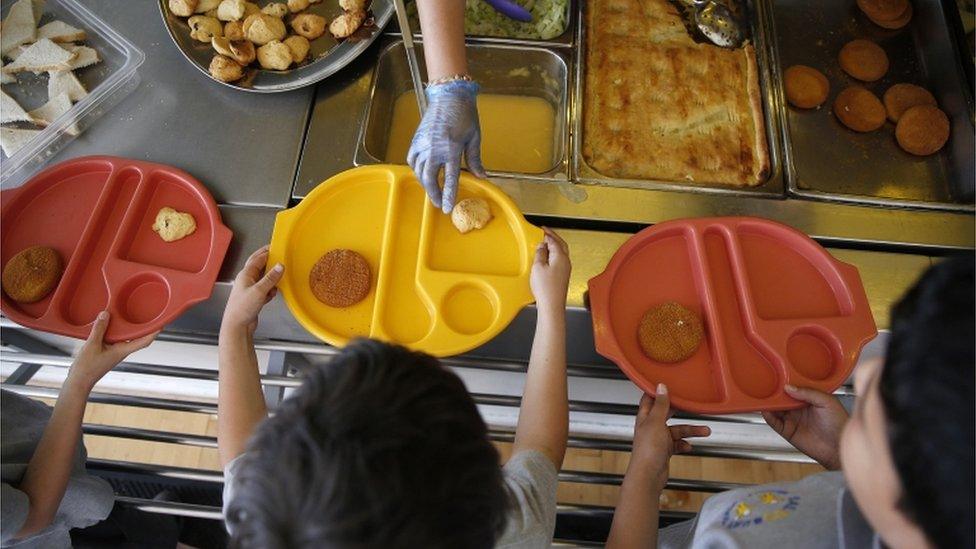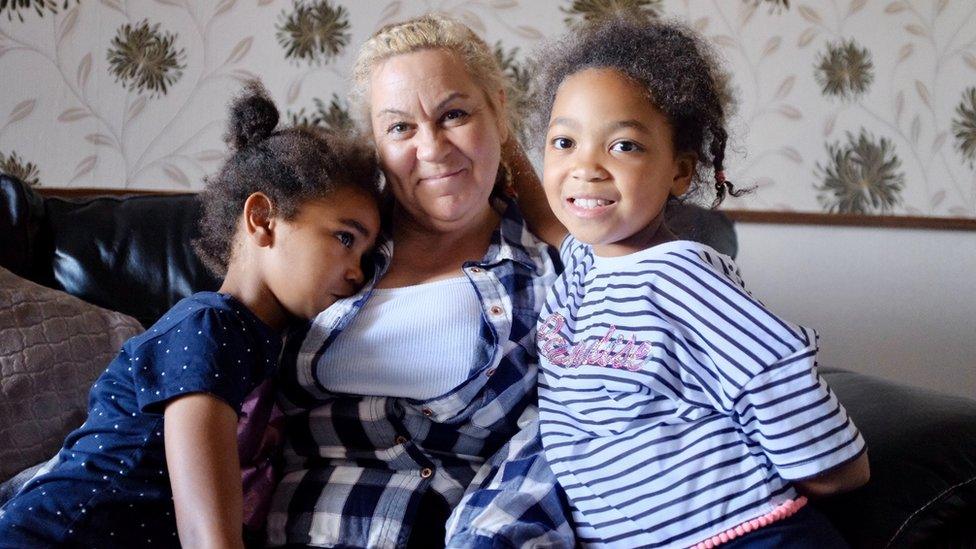Free school meals: Double earnings threshold, say AMs
- Published
- comments

The recommendation came as part of a committee's inquiry into devolving the welfare system
The earnings threshold for families entitled to free school meals should double in 2020 if the Welsh Government can afford it, AMs have said.
The children of parents who receive universal credit and earn less than £7,400 qualify for free school meals.
But an Assembly committee said Welsh Government should consider increasing the limit to £14,000 next September.
The Welsh Government said it would consider the report and respond to the recommendations in due course.
Universal credit applies to the whole of the UK, but free school meals are allocated differently in the devolved nations.
The £7,400 free school meals earnings threshold was introduced in April, but AMs said it should increase "as a matter of principle".
Depending on individual circumstances, a typical family earning £7,400 a year would have a total household income of between £18,000 and £24,000 a year once benefits are taken into account.
Scotland and England have a similar earnings threshold to Wales, but the Trussell Trust food bank charity said Wales should match Northern Ireland where the threshold is £14,000.
AMs want a feasibility study carried out in time for the start of the next academic year to work out "if the increase is financially viable".
The recommendation came in a report by the Assembly's cross-party equality committee following their inquiry into devolving the welfare system.
The Welsh Government has commissioned a study into the issue, having previously rejected calls for the devolution of welfare powers.
Almost half of people in Wales receive some sort of benefit, under a system that is largely controlled from Westminster.
'Human cost'
The committee said people should be allowed to have their universal credit paid more frequently or directly to their landlords if they wanted.
This has happened in Scotland, where parts of the welfare system have been devolved.
Devolution could create a more "compassionate" benefits system, but it will not happen automatically, the committee said.
However there are aspects of the system that should be controlled from Cardiff, the AMs said, including assessments for people claiming sickness and disability benefits. Top-up payments should also be available, they added.
Committee chairman John Griffiths AM said the current welfare system was not working for "far too many people".
"We repeatedly hear that benefits are not enough to cover basic and essential household costs, and the system does not treat people with dignity, fairness or compassion," he said.
"The human cost of these failures is unacceptable, in one of the world's largest national economies.
"Whilst recommending that Welsh Government explore opportunities to devolve more control of benefits to Wales, our recommendations emphasise what can be done now, within the current settlement, and in the longer term."
A Welsh Government spokesman said: "We continue to mitigate the impacts of the UK government's welfare reform where we can.
"In order to meet the additional free school meal costs associated with the rollout of universal credit, we have provided extra funding of £5m to local authorities.
"We will consider this report alongside our exploration of the devolution of certain aspects of the benefits system, and will respond to the recommendations in due course."
- Published6 June 2018

- Published12 November 2018

- Published25 April 2019
